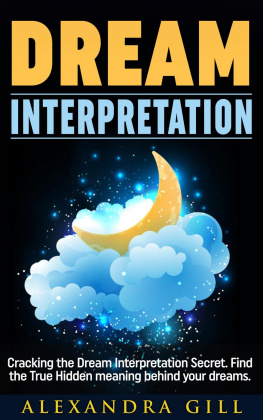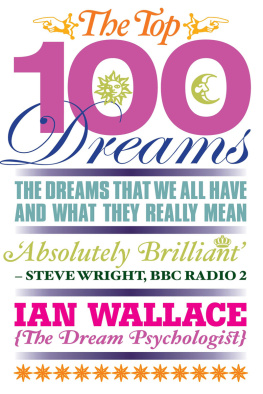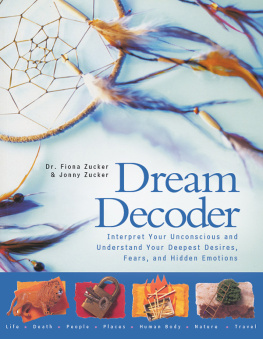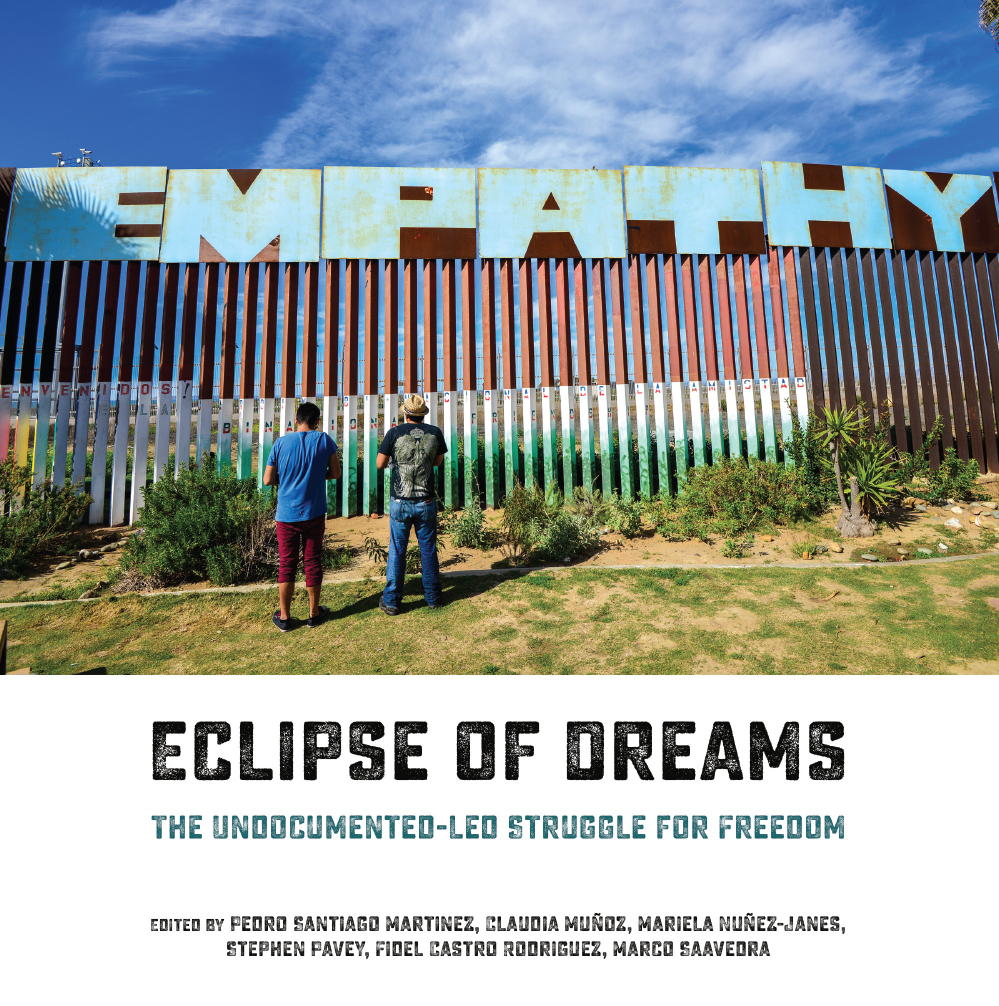Prelude
One discovers the light in darkness, that is what darkness is for; but everything in our lives depends on how we bear the light. It is necessary, while in darkness, to know that there is a light somewhere, to know that in oneself, waiting to be found, there is a light. What the light reveals is danger, and what it demands is faith.
James Baldwin, Nothing Personal
Ahogadas, escupimos el oscuro.
Peleando con nuestra propia sombra
El silencio nos sepulta.
Drowning, spitting the dark.
Fighting with our own shadows
The silence buries us.
Gloria Anzalda, Borderlands / La Frontera
Some things can only be learned in the darkness. We had already come to realize this somewhere deep within our bodies, from sharing our stories and listening to those of so many other courageous youth coming out of the shadows, declaring, I am undocumented and unafraid. What we had come to know as true, we learned by navigating the contradictions lived deep within experiences of illegality, inequality, and the everyday threat of deportability. Our common struggle for human freedom, and at times simply for survival, led to that moment in 2010, imbued with optimism, hard work, and determinationthat moment where belonging, civil rights, upward mobility, and a path to citizenship seemed possible. This was our dream.
On December 18, 2010, the Senate gallery of the U.S. Capitol could scarcely hold the multitude of undocumented youth, family, and friends. It was crowded with hope. Some of us woke early that morning to brave the harsh cold, the long lines passing through the Capitols visitor center security. Most importantly, we braved the Senate vote on the DREAM Act (Development, Relief, and Education for Alien Minors). Others gathered across the U.S. in living rooms, classrooms, and community halls, sitting in front of televisions tuned in to the Senate vote streaming live on C-Span. Some waited and watched alone.
What was this DREAM that we were all waiting for? The DREAM Act is the name given to a series of proposed legislative Acts that, since first introduced in 2001, promised to provide an estimated 2.1 million undocumented 1.5-generation youth in the United States, a path toward legal status. The terms of eligibility changed over the years since its introduction in 2001, but in general, one would need to provide evidence of entering the country under the age of sixteen, have lived in the U.S. for at least five years, graduated from high school, demonstrate good moral character, and commit either to a path toward college education or service in the military.
What was about to happen in the Senate Gallery was important because it represented a struggle of almost a decade. To put our concerns and dreams into perspective, nearly 65,000 undocumented youth graduate from American high schools each year. This undocumented 1.5-generationborn outside the U.S. but raised in itis caught in a legal paradox. Although guaranteed free public primary and secondary education by the Supreme Court decision Plyler v. Doe in 1982, these students today face the contradictions of limited opportunities for college education and social mobility. After high school, those who do finish must contend with limited access to financial aid, out of state tuition rates (except in seventeen states), the inability to work legally, and a host of restrictions on their movement and rights in the country that most refer to as home.
Unfortunately, only an estimated five to ten percent pursue higher education.
Some estimate that nearly 20,000 undocumented youth were mobilized to action during the year leading up to the possible passage of the DREAM Act. The year 2009 closed with a successful public campaign led by undocumented youth in Chicago to end the deportation of a student attending the University of Illinois at Chicago. Many saw 2010 as the year for the DREAM Act to come true. Four undocumented youth set off on January 1, 2010, from Florida on the trail of dreams, a walk of 1,500 miles to Washington, D.C. The first public coming out event as undocumented and unafraid was held in March in front of Immigration and Custom Enforcement (ICE) offices in Chicago. The trail of dreams ended in D.C. in May with a press conference where thirty-five immigrant rights advocates were arrested. Just a few weeks later, five undocumented youth engaged in civil disobedience with a sit-in at Senator John McCains office in Phoenix and were arrested on the anniversary of Brown vs. Board of Education . Throughout the summer, undocumented youth continued mobilizing. In Texas, Kentucky, Michigan, New York, North Carolina, and California there were hunger strikes. In July, undocumented youth traveled across the country to Washington D.C. for the DREAM University Graduation, the largest mock graduation of undocumented students to date, and following the demonstration twenty-one undocumented youth were arrested for civil disobedience. Across the country undocumented youth on college campuses were organizing DREAM teach-ins, phone banks, lobbying efforts, prayer vigils, and even more hunger strikes. In September, the DREAM Act failed to pass as an amendment that was attached to a Department of Defense authorization bill. Behind the scenes, politicians debated the timeliness of a stand-alone DREAM Act versus a push for comprehensive immigration reform.
Waiting until the very last weeks of the legislative season, politicians decided to push for the DREAM Act as a stand-alone bill during the lame duck session, a name that did not portend good news for our efforts. In early December, hundreds of undocumented youth across the country quit jobs and left final papers and exams to come to D.C. to organize for the DREAM Act. We worked nearly around the clock lobbying and organizing. On one day alone, we organized an effort of 77,000 phone calls supporting the DREAM Act. There were more prayer vigils and hunger strikes. There was Christmas caroling through the halls of Congress, with lyrics revised to support the DREAM Act, Oh, senators, oh senators, please pass the DREAM Act now. We organized a DREAM blood drive, a DREAM Sabbath, DREAM homework sit-ins in the congressional cafeterias, and a reenactment of the march around Jericho, now the Capitol, praying that the walls standing against the DREAM Act would fall. And all of this hard work and determination paid off with the passage of the DREAM Act in the House of Representatives on December 8, 2010. Now all that was needed was for the Senate to pass this version and the President to sign it.
The morning for this important vote on the DREAM finally came. By 9:00 a.m. the Senate gallery was largely full. The Senate was called to order and then a prayer was offered for wisdom for our legislators, that they would be turned away from false solutions.
Two and a half hours after the Senate was called to order, at 11:31 a.m., the chair reminded the gallery that expressions of approval or disapproval are not permitted. Around the gallery we all held each others hands. The fate of the DREAM Act, our fate, was clear as we watched each Senator come forward to cast their vote, some very visibly with their thumbs down. The motion is not agreed to. The DREAM Act died, just five votes short of the sixty needed to advance the bill.
It was so close. There was a visible numbness among us, a shock that immediately gave way to tears and strong embraces across the gallery. What nownow that we witnessed this eclipse of dreams?










